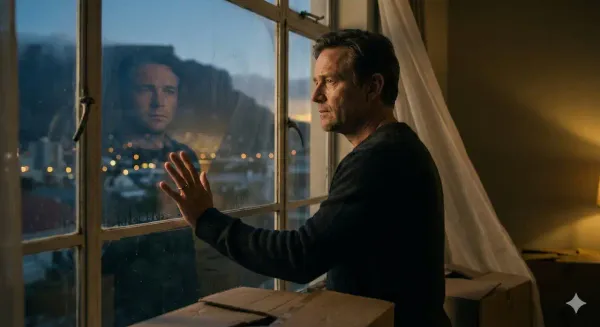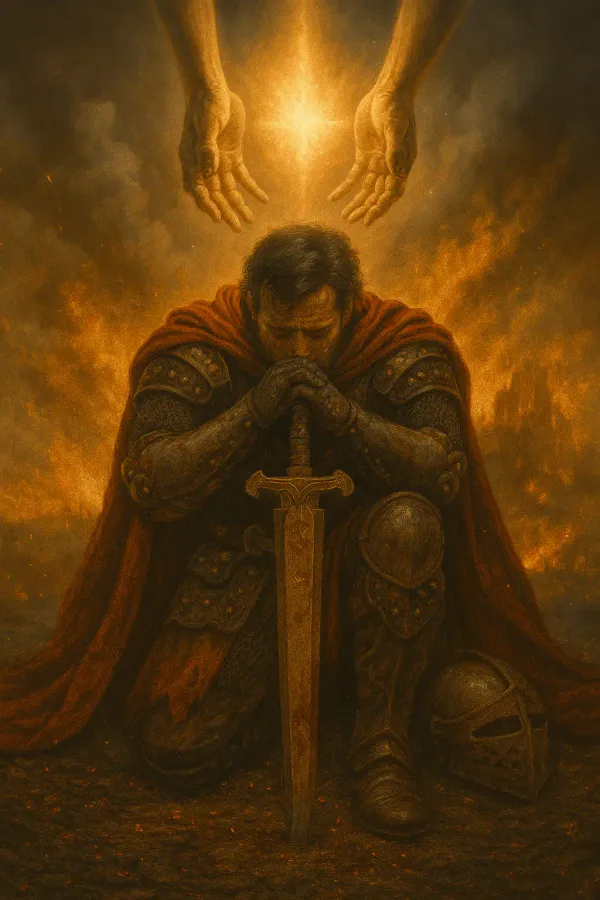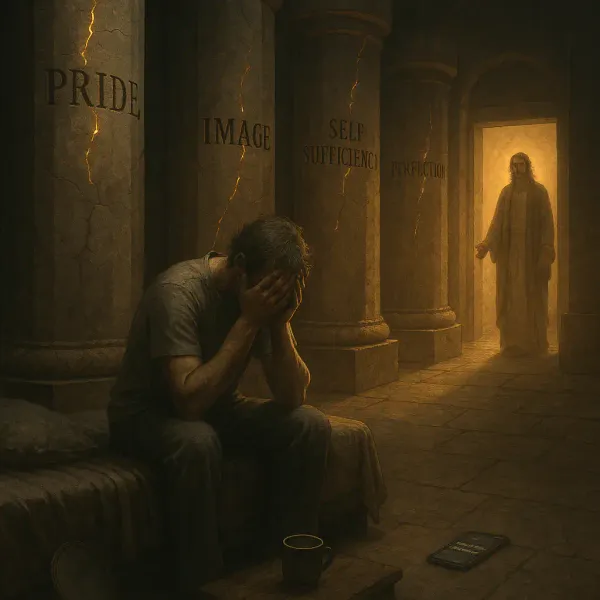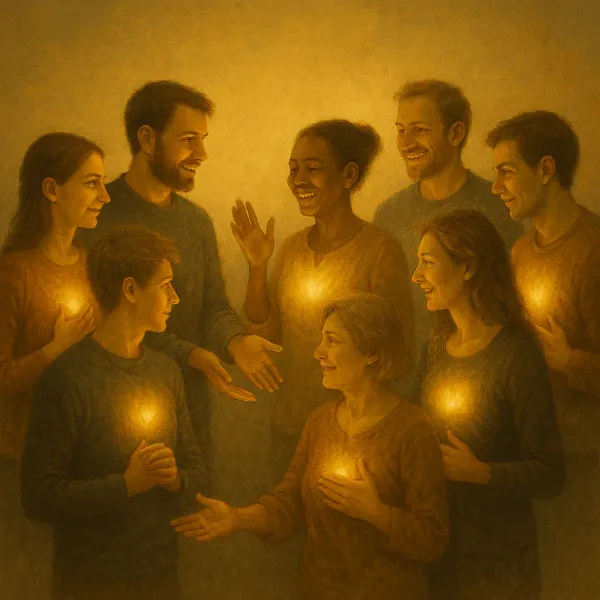Beauty That Pierces: A Journey into a Transforming Power
Beauty that humbles, that wounds to heal, that awakens longing for the One beyond all algorithms. Walk with me through oceans, cathedrals, songs, and sacred silence — and let true beauty pierce you into deeper becoming.
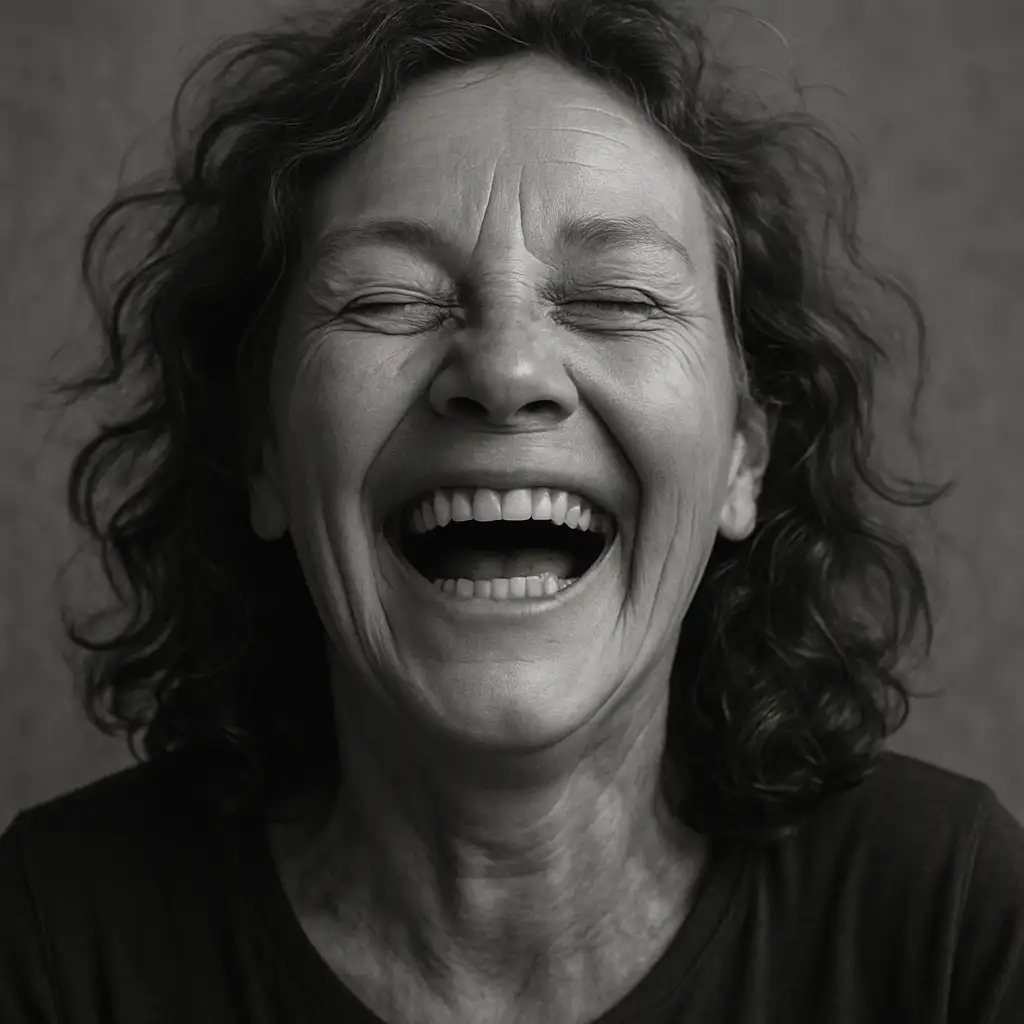
We rarely plan the moments that undress our souls. Sometimes, beauty simply arrives — uninvited yet unmistakable — and we are undone.
You've tried to capture it—that moment when God felt close. But the Instagram post fell flat. The worship selfie felt hollow. Why can't we bottle the sacred?
This is not the beauty the world measures by likes or lenses. This is the kind that makes you weep without warning, that leaves you breathless before a canvas of stars, a whisper of music, a trembling hand lifted in worship.
Today, I want to walk with you into those moments. To explore — through personal reflection — what it means to be moved by beauty, and why no algorithm, no curated feed, no predictive engine can ever truly replicate it.
Let’s begin, not with answers, but with presence. With the places where Christ-shaped knowing invites us deeper.
Beauty That Breaks In
Years ago, a book found me—or perhaps, I was readied to find it.
"The Evidential Power of Beauty" by Thomas Dubay, a Catholic priest.
Though the structure of Catholicism, in its institutional trappings, holds little appeal for me, I will not deny: the Spirit still speaks, sometimes even from places we find foreign.
Dubay’s words stirred a deep ache in me—a longing unnamed but intimately familiar.
He wrote of beauty not as ornament, but as evidence: a mirror through which the infinite speaks to the finite, and the soul remembers what it was made for.
One phrase I recall, etched somewhere into the fabric of my heart:
“The acute experience of great beauty readily evokes a nameless yearning for something more than earth can offer.” — Thomas Dubay
How true. Beauty, when it truly pierces, does not satisfy—it summons.
It summons us beyond the canvas, beyond the melody, beyond the sunset. It points, like John the Baptist, saying: “I must decrease. That He might increase.”
My Own Moments of Beauty Breaking In
There was the evening I stood at the edge of the Atlantic at Noordhoek, wind whipping my hair into knots (I had long hair then), watching the sun paint its final embers into the ocean.
I wept—not because the view was picturesque, but because something in me recognised it. A home I could not yet enter, but knew I belonged to.
A short time before, I had been sitting astride my surfboard beyond the back-line, waiting. The choppy Atlantic waters were grey and mysterious. Then—the water stirred, pushed up— and a southern right whale surfaced.
Its immense eye looked directly at me.
Barnacles scattered across its skin; rivulets of water ran down its towering form. And for a long, trembling moment, I was captured in its gaze.
Wordless understanding passed between us.
It was a terrifying beauty. I was at once awed and undone. I understood immediately who was in their natural habitat—and it was not me. Yet strangely, I felt no fear. Only a beauty that broke in, and a Presence beyond words.
In that moment, I knew:
Beauty does not flatter the ego. It humbles it. It invites awe, not achievement.
It does not ask, “How do you appear?” It whispers, “Be still. Know that He is God.” (Psalm 46:10, NASB95)
⸻
Another memory surfaces.
The time I stumbled upon the great cathedral in Cologne. Not a planned pilgrimage—just a grey, unremarkable afternoon. Yet when I entered, it was as if I stepped into another time.
The cathedral had been severely damaged during the war. The Germans had painstakingly reconstructed it, stone by stone, somehow holding the memory of its wounding while still rebuilding something ancient.
The vaulted ceilings sang without a single note. Light spilled through the storied windows, washing the stone in a thousand colours. Every scuff in the stone steps, every mark in the pews, whispered of lives lived, prayers uttered, sorrows borne, joys celebrated.
It wasn’t aesthetic admiration that moved me. It was the ache of beholding the against-all-odds survival of something sacred. The beauty of the apostolic message—not polished, but preserved through storms and centuries.
The stones seemed to murmur:
We beheld.
We touched.
We endured.
He is faithful.
The inexpressible beauty of that miracle—the endurance of Christ’s life through His body, the Church—welled up in me. Words failed.
How strange, how unexpected, to be touched through a cold, hard, human-made cathedral— and yet be drawn into the living beauty of what could not be broken.
No digital feed could have predicted that. No algorithm could have recommended it.
It revealed something in me that even I didn’t know was waiting to be seen.
I took many photos, hoping to capture the experience. When I returned home, I had them developed to show family and friends. But they flipped through them—unmoved, indifferent.
It puzzled me. Why couldn’t they see the beauty?
Only now, as I have embarked on this deeper journey of becoming, does it come into focus:
Beauty is not in the pictures. It is in the deep longing.
The fractured-yet-enduring beauty of being human, formed in Christ across the ruins and rebirths of history.
This is resurrection beauty. The stubborn, scarred, shining survival of the apostolic life through stone, suffering, and stillness.
This is precious beyond words.
The fracture beauty reveals
Algorithms can predict preferences. Feeds can optimise engagement.
But no system built by human hands can simulate the shattering hush that falls over a soul standing naked before true beauty.
Because beauty, in its evidential power, does not merely entertain. It confronts. It reminds us we are not gods, but longing creatures in need of the beautiful presence of Glory.
As Paul wrote:
“Since the creation of the world His invisible attributes—His eternal power and divine nature—have been clearly seen, being understood through what has been made, so that they are without excuse.” — Romans 1:20 (NASB95)
Even fallen creation still bears the imprints of His touch. Exudes HIS untainted, unvarnished glory.
A small practice of sacred noticing
This week, when something unexpectedly moves you—light through a window, an overheard kindness, music that stops you mid-step—pause.
Don't photograph it. Don’t Shazam the song for your playlist. Don't analyse why. Don't share it. Don't doubt it.
Simply place your hand on your heart and whisper: "I was made for this."
Your capacity to be pierced by beauty is evidence of being made in His image. Let that be enough.
Beauty Shared Beyond Words
Some beauty cannot be consumed alone. It demands witnesses. It creates communion — a sacred space where souls brush against one another and something larger than any one person fills the air between.
⸻
A Night with Shawn Phillips
I remember once attending a concert by Shawn Phillips at the 3 Arts Theatre in Plumstead, Cape Town. It was a small community theatre, humble and intimate.
Shawn was an artist who had touched the edges of fame, then turned his back on the machinery of the music industry, refusing to surrender authenticity for success. He told stories between songs — quietly, honestly — of busking in the streets to make ends meet. A passerby recognising him, shocked: an artist of such talent, singing for coins.
His performance was simple, almost fragile.
A small Macintosh SE served as his backing band.
An array of instruments lined the stage, and he moved among them like an old friend—playing, singing, weaving worlds.
One song in particular—The Ballad of Casey Deiss—held us captive. The melody swelled, broke, soared. When he struck the final note, it ended not with applause, but silence.
Thick, awed silence.
For a long, breathless minute, no one moved.
We were captured—not merely by the technical mastery, not only by the melody.
But by the raw humanity.
The music was not polished performance.
It was prayer.
It was presence.
It was entirely, authentically, uniquely human.
Uniquely, intimately Shawn.
⸻
What Algorithms Cannot Touch
Today, algorithms have decoded the patterns of mainstream music. Apps exist that can compose songs indistinguishable from commercial hits.
Anyone can mimic the sound of a Van Morrison or a Shawn Phillips.
But no machine can yet capture the humanness of that night:
The improvisations that rise from fragile courage.
The imperfections that carry the fingerprint of a soul.
The wordless transactions between musician and listener, between breath and silence.
Perhaps one day the melodies will be indistinguishable.
But what of the sorrow poured into a chord?
The tears hidden between lyrics?
The joy expressed in a chorus?
The soul’s invisible trembling, offered without certainty it will be received?
What of the human musicians feeding off one another’s unspoken signals, the way the audience’s stillness feeds back into the performer’s heart?
There is beauty here that no algorithm can replicate, because it is not produced.
It is given.
It is shared.
That night, it was as if we were given a keyhole glimpse— a fleeting peep through a torn veil— into the songs of heaven.
The unity, the longing, the surrender.
The beauty of a people gathered around the Lamb, their voices woven together in a song no algorithm could ever script:
“And they sang a new song, saying, ’Worthy are You to take the scroll and to open its seals, because You were slain, and You purchased people for God with Your blood from every tribe, language, people, and nation.’” — Revelation 5:9 (NASB95)
It echoed, ever so faintly the shouts before the throne, where sapphire pavement stretches beneath the feet of the Holy One (Exodus 24:10), where living creatures cry, “Holy, holy, holy is the Lord God, the Almighty, who was, and who is, and who is to come.” (Revelation 4:8).
And it whispered, too, of that company no man could number— the martyrs, clothed in white robes, standing before the throne with palm branches in their hands, crying out:
“Salvation belongs to our God who sits on the throne, and to the Lamb!” — Revelation 7:10 (NASB95)
Those who came through great tribulation, whose lives had been poured out like songs— now gathered in radiant worship, bearing scars that had been turned into crowns.
The music that night was a faint shadow, a whisper of that coming reality— the glorious unity, the radiant beauty, the human voice transfigured into worship beyond comprehension.
It was not just a concert.
It was a communion.
A shadow communion of what awaits those who have surrendered.
⸻
The Psalms: Songs Wrought from Soul and Suffering
The ancient songs of Israel—the psalms—are born of this same human place.
Their anguish is not strategic.
Their exaltation is not calculated.
Their words not vectored.
They are the soul crying out: raw, wounded, worshipping.
The psalmist does not curate his pain for audience approval. He pours it out like costly oil on the altar.
“I am weary with my sighing; Every night I make my bed swim, I flood my couch with my tears.” — Psalm 6:6 (NASB95)
“My heart is steadfast, God, my heart is steadfast; I will sing, yes, I will sing praises!” — Psalm 57:7 (NASB95)
This is beauty beyond words.
This is the humanity algorithms cannot fabricate.
It is the lived, scarred, surrendered beauty of beings who dare to bring their full selves into communion—with each other, and with the God who alone can hold them.
⸻
A Small Practice of Listening
This week, find a song—old or new—that moves you beyond words. Do not analyse it. Do not curate it for others.
Simply let it pierce you.
And if you feel moved—weep.
Or sing.
Or dance wildly.
Or sit in silence.
Let beauty draw you into the holy space where your spirit meets the SPIRIT and words fall away.
The Beauty We Protect Together
I once belonged to a small circle that gathered weekly around being men in Christ and prayer — no livestreams, no hashtags, no sponsors.
Husbands and fathers, all:
Jan, Cobus, Steven, Alex, myself.
We met not to perform, but to share lived experience. To behold Christ in each other’s faltering stories.
We shared.
We listened.
We let silence linger longer than was comfortable.
It wasn’t always like this. It started with intent — but not yet with intimacy. Conversations veered easily toward motor racing, man toys, sports scores. I was frustrated, hollowed out by the triviality.
I silently cried out: Who? What? Why?
An answer came — quiet, clear:
“Cut a vein and bleed.”
So I did. It was hard. My throat clenched. My heart fought the exposure. But I spoke — vulnerably, falteringly — offering not opinions, but wounds.
The response was awkward. As often with men, a few words, a joke, a quick return to the familiar shallows.
I was disappointed. Still frustrated.
⸻
The next week, something shifted.
Steven — always the first to arrive — was late. Concern flickered among us.
Then the door opened.
The usual jesting began — testosterone and bravado. But Stephen raised his hand. His face serious, downward, a steely resolve in his posture.
The banter died mid-sentence.
And then Stephen cut a vein and bled.
He went deep. Really deep.
He spoke not from his strength, but from his breaking. And in that moment, gravity filled the room.
Our gathering was forever changed.
It was no longer a circle of casual acquaintances. It became a fellowship of scarred men learning to sup together — to share the true bread of life, not just surface words.
In that room, beauty was not consumed. It was kept — like a fragile flame.
No engagement metric could have birthed it.
No algorithm could have designed it.
It was built only through presence, patience, and shared intimacy.
It was the beginning of becoming a body — not a network, but a household of souls.
The supper of true believers — not ritual, but remembering. Not performance, but participation.
A living echo of the Church’s first days:
“They were continually devoting themselves to the apostles’ teaching and to fellowship, to the breaking of bread and to prayer.” — Acts 2:42 (NASB95)
Beauty protected by bleeding. Flame protected by bearing one another’s burdens.
This is the kind of beauty algorithmic culture cannot comprehend. It is fragile. And it lingers beyond the separation of our journeys.
A Beauty the Algorithm Cannot Name
I think often of cultures that honour the beauty of shared imperfection, of belonging born through brokenness — the Zulu concept of Ubuntu, the Hebrew psalms’ honest laments, the early Church’s feasts of remembrance.
None of these are “content.”
They are currents — living rivers of meaning — that cannot be optimised, only entered.
Ubuntu says: “I am because we are.” The psalms say: “Out of the depths I cry to You, O LORD.” (Psalm 130:1, NASB95). The early believers broke bread and bore each other’s burdens without fear of inefficiency.
The culture of Christ’s kingdom is not one of polished presentation. It is a way of being — where beauty is both sword and balm, calling us into wholeness, not consumption.
Becoming People Who See
So I ask myself — and I ask you, gently:
- Where has beauty pierced you beyond explanation?
- Where has the Spirit used beauty to awaken a deeper knowing?
- Where have you mistaken curated awe for the Spirit’s authentic moving?
May we have the courage not just to experience beauty — but to let it change us.
To weep.
To wonder.
To worship.
Not because an algorithm served it to us. But because Christ is the WORD through whom all true beauty was spoken into being.
“One thing I have asked from the LORD, that I shall seek: That I may dwell in the house of the LORD all the days of my life, To behold the beauty of the LORD and to meditate in His temple.” —Psalm 27:4 (NASB95)
